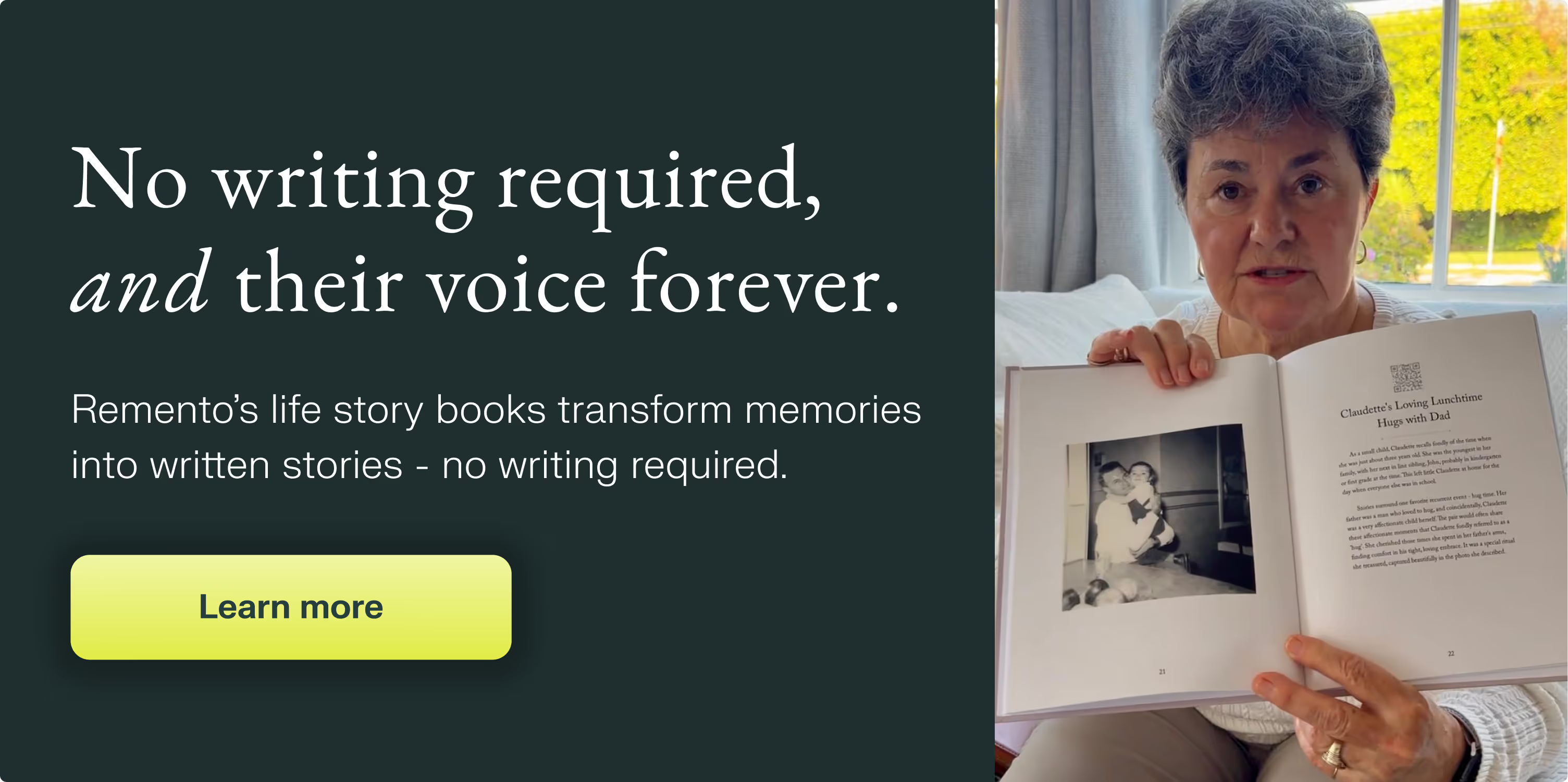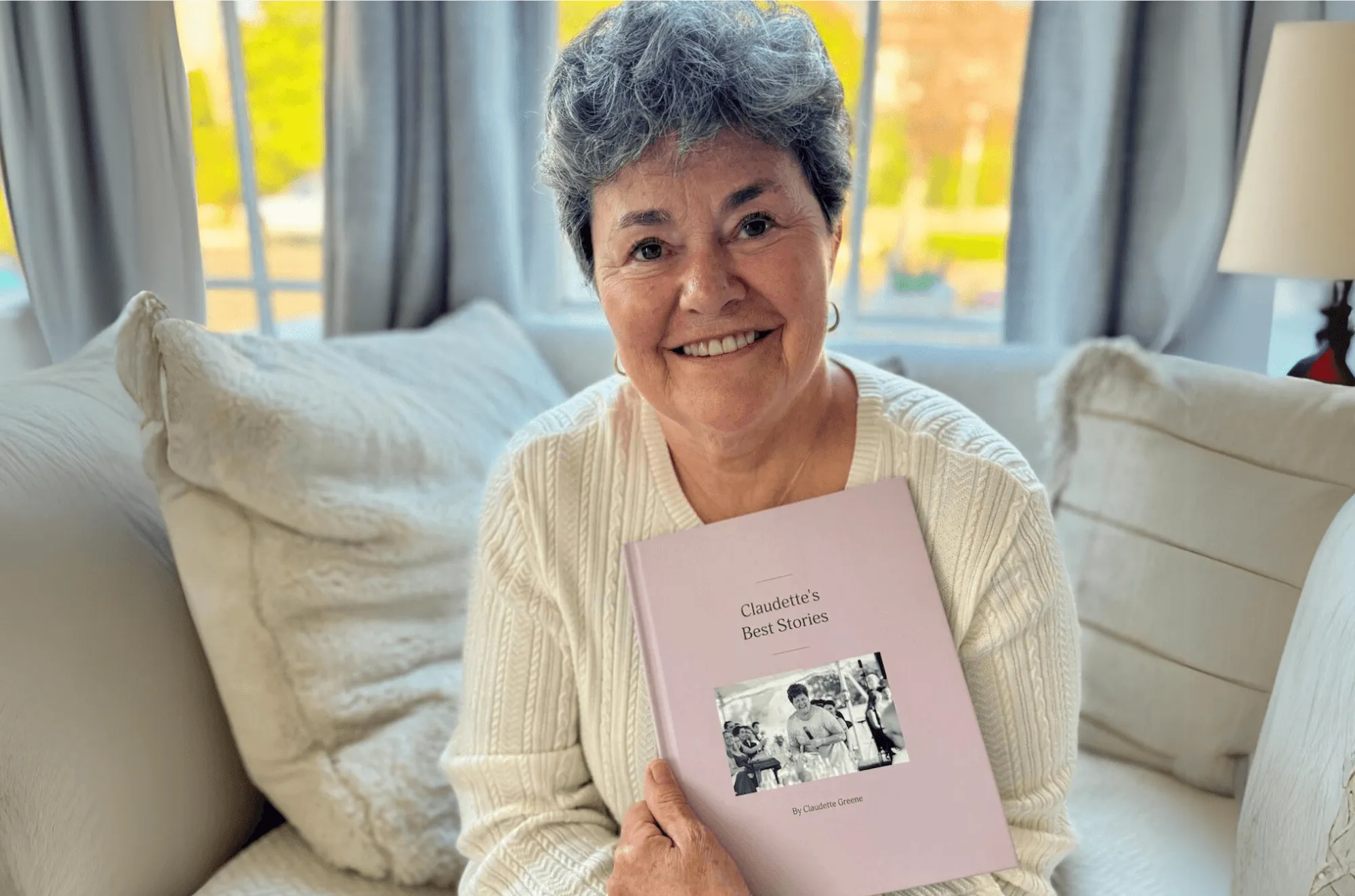Learn why families love Remento
Guaranteed to teach you things you never knew.
If you are looking to get to know your parent in a new light, strengthen or reset your relationship, or maybe just connect your children to their grandparents, try asking these 20 questions.
It’s easy to see a parent as a one-dimensional figure limited to the role of “mom” or “dad,” forgetting that they had an entire life before you. We get caught up in the day-to-day noise of life, the transactional updates and small talk, or the habitual avoidance of controversial topics. If you are looking to get to know your parent in a new light, strengthen or reset your relationship, or maybe just connect your children to their grandparents, having some questions to start from can be invaluable.
The twenty questions below will open the door to new discoveries and a deeper understanding of your parents or grandparents. Choose a few for your next phone call, or print them out and use them at your next family gathering. Friends and family can all participate and you’ll be amazed at the new light through which you’ll see each other.
You may want to get the Remento book to capture and save these wonderful conversations with your parents and grandparents in a keepsake book.

Remento's no-write life story books make it easier than ever to document family stories. With Remento, your parent or grandparent will be invited to record their answer to these questions (and more!) from any device - no downloads required. Then, Remento turns their recordings into written stories, each of which is printed into a hardcover, keepsake book. Read the book, or scan the QR codes within it to hear their voice. Learn more about Remento today.
Next up: Tips for interviewing a family member.

Remento’s life story books turn a parent or grandparent’s memories of the past into a keepsake book for the future - no writing required.
Join the thousands of families using Remento to preserve family history, all without writing a word.